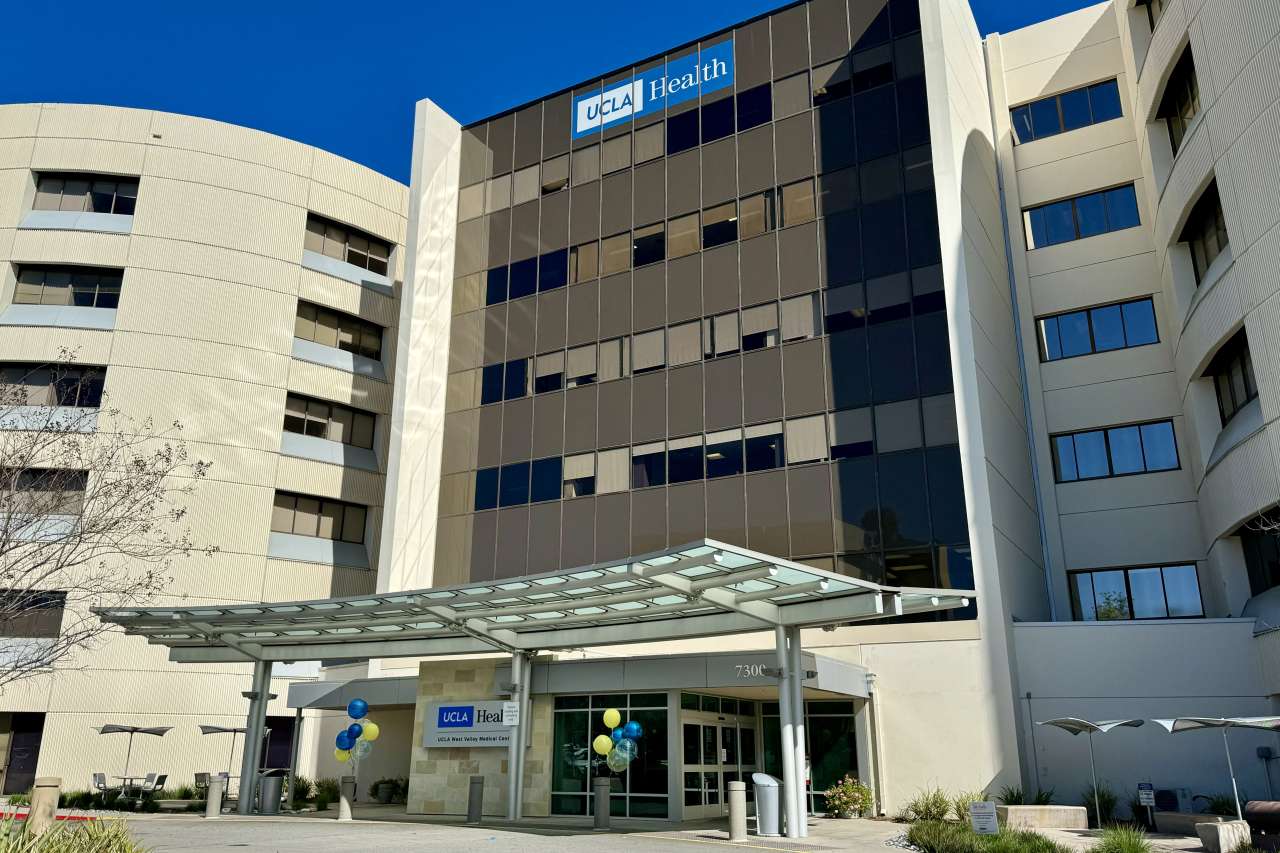UCLA research finds that combining immunotherapy with chemotherapy is safe and effective for people with advanced small cell cancers in the bladder and prostate
A research team led by UCLA Health Jonsson Comprehensive Cancer Center investigators has shown that that combining pembrolizumab, an immunotherapy drug, with standard chemotherapy can improve treatment outcomes for patients with small cell bladder cancer and small cell/neuroendocrine prostate cancer.
Small cell carcinomas can arise in various tissues—including the bladder, prostate, lung, ovaries and breast—and are known for their rapid progression, tendency to relapse after initial treatment and poor overall survival rates. The survival time for patients with advanced small cell bladder cancer is only about 7 to 13 months and only 7 to 9 months for patients with small cell/neuroendocrine prostate cancer.
The early-stage study, published in Cell Reports Medicine, showed that using pembrolizumab with chemotherapy resulted in 43% of patients having a partial or complete regression of disease, with 86% of patients with bladder cancer and 57% of those with small cell/neuroendocrine prostate cancer living two years.
“The combination of pembrolizumab and chemotherapy presents a promising new treatment approach for these challenging-to-treat, rare cancers and could be a major breakthrough for patient care,” said Dr. Arnold Chin, Professor of Urology at the David Geffen School of Medicine at UCLA and senior author of the study.
Immune-based treatment, such as pembrolizumab, has showed success for treating people with a variety of advanced or metastatic cancers, including patients with advanced small cell lung cancer. Previous laboratory-based research at UCLA, led by Dr. Owen Witte, Chin and colleagues, has demonstrated that small cell cancers in the bladder, lung, and prostate share many biological traits.
Building on these findings, Chin and his team pursued the concept that treatment approaches should target cancers based on molecular similarities. They designed a clinical trial across all small cell/neuroendocrine urologic cancers combining pembrolizumab and chemotherapy as a first-line therapy for bladder and prostate small cell cancers.
The trial involved 15 patients who were separated into two cohorts.
The first included seven participants with advanced or metastatic small cell bladder cancer, while the other group included eight patients with primary small cell or neuroendocrine prostate cancer. The study was designed for patients who would normally receive chemotherapy as part of their standard care.
The researchers found that patients showed favorable responses using this treatment regimen. In bladder cancer group, only one out of seven patients experienced disease progression after a median follow up of almost three years.
For the prostate cancer group, the median survival for patients with small cell/neuroendocrine prostate cancer in the trial reached 27 months, which is longer than expected compared to the historical average of just 7 to 9 months.
The combination treatment was also well-tolerated, with no patients needing to stop therapy due to side effects.
“These results suggests that the combination therapy could provide a substantial survival benefit,” – said Chin, who is a member of the UCLA Health Jonsson Comprehensive Cancer Center and the Eli and Edythe Broad Center of Regenerative Medicine and Stem Cell Research.
Along with the encouraging survival rates, the team found that the clonal expansion of CD8+ T cells in the blood, a type of immune cell, in response to treatment correlated with better progression-free survival. This indicated that a blood test could be predictive of treatment response for patients in the future.
The findings support the need for larger clinical trials to confirm these findings.
The study’s first authors are Yiqian Gu, a graduate student in the bioinformatics interdepartmental program at UCLA, and Ann Ly, formerly a staff researcher in the department of urology at UCLA and now a doctoral candidate at UC Davis.

UCLA authors include Sara Rodriquez, Hanwei Zhang, Jiyoon Kim, Zhiyuan Mao, Ankush Sachdeva, Nazy Zomorodian, Matteo Pellegrini, Gang Li, Alexandra Drakaki, Matthew Rettig, and Sandy Liu, who is now at City of Hope.
Other posts featuring UCLA Health.



